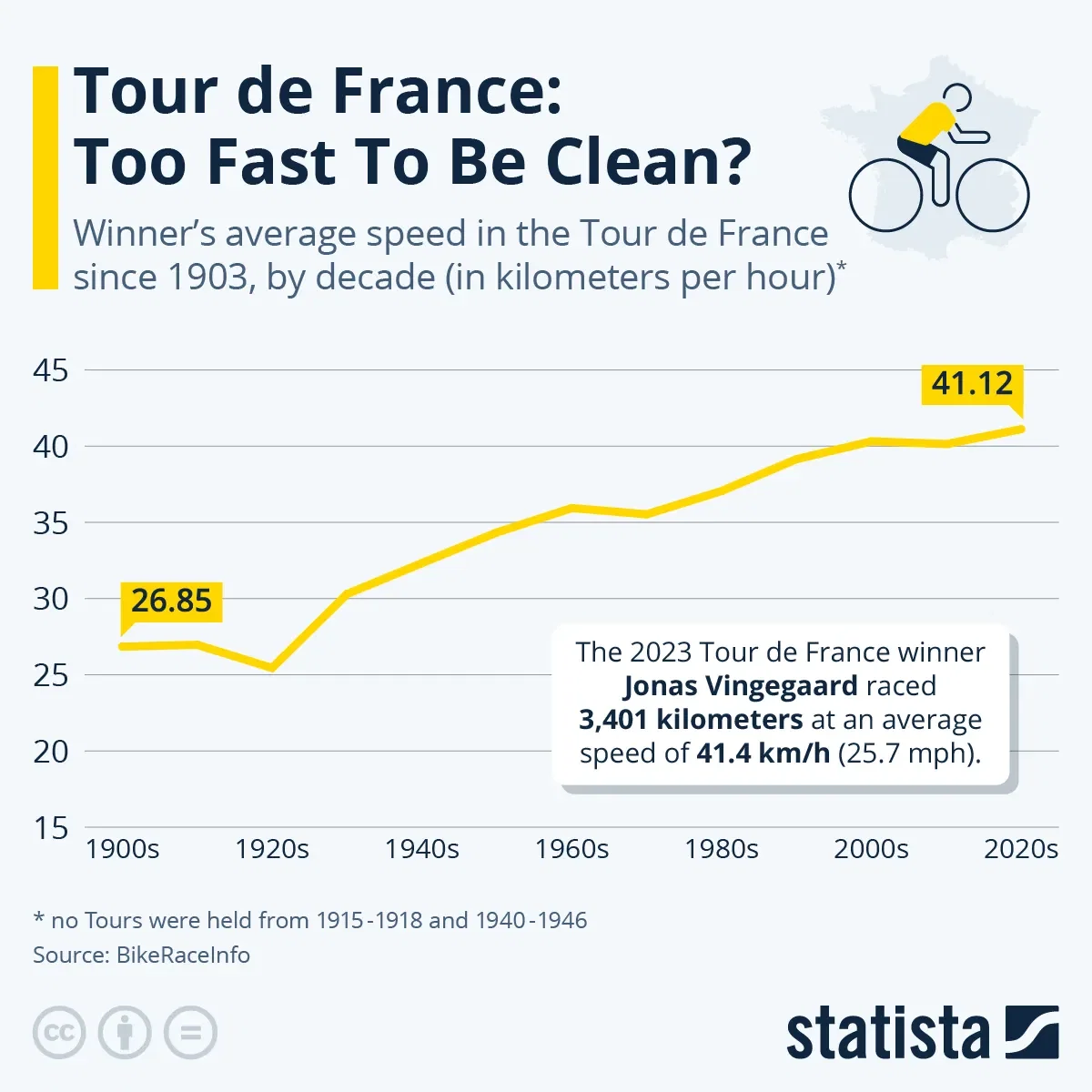Where Data Tells the Story
© Voronoi 2025. All rights reserved.

On the way to his second Tour de France victory last year, Denmark's Jonas Vingegaard was facing tough questions regarding his pace before he even arrived in Paris. How was he going so fast? How was it possible to be over seven minutes ahead of a cyclist of Tadej Pogačar's caliber? Some reporters even explicitly asked: "Are you cheating?".
Vingegaard's response? In a press conference following stage 17, which he had finished more than five minutes ahead of his biggest rival Pogačar, the Dane proclaimed: "For me, it’s hard to tell what more you can say. I guess, I understand that it’s hard to trust in cycling with the past there has been. But I think nowadays everyone is different than they were 20 years ago. And I can tell from my heart that I don’t take anything. I don’t take anything I would not give to my daughter, and I would definitely not give her any drugs.”
At the end, Vingegaard completed the grueling 3-week, 3,401 kilometer competition at an average speed of 41.4 km/h (25.574 mph). Given cycling's deservedly bad reputation, it is perhaps understandable that exceptional performances like that still raise suspicions. As this chart shows, the Tour de France has not slowed down since the doping-infested years of the early 2000s. Whether that's due to super-fast carbon bikes, favorable routing or the use of performance-enhancing substances is a question the sport is not yet fully able to answer.